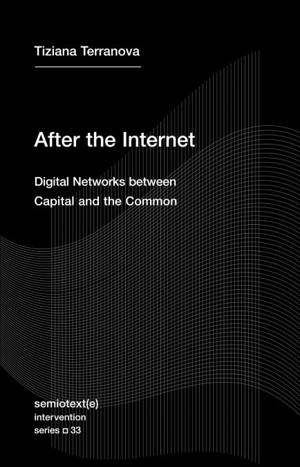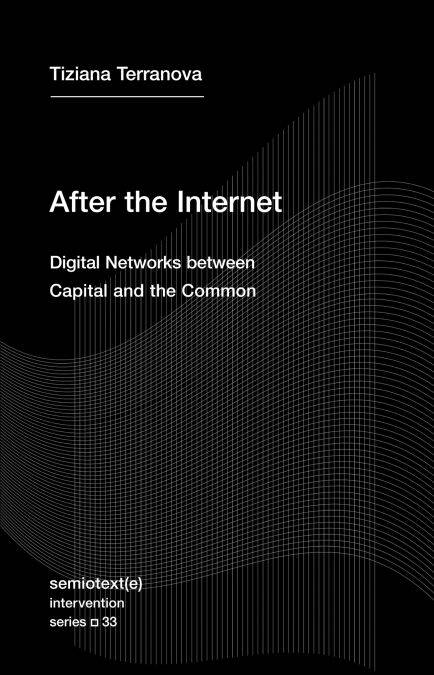
- Afhalen na 1 uur in een winkel met voorraad
- Gratis thuislevering in België vanaf € 30
- Ruim aanbod met 7 miljoen producten
- Afhalen na 1 uur in een winkel met voorraad
- Gratis thuislevering in België vanaf € 30
- Ruim aanbod met 7 miljoen producten
Zoeken
€ 16,71
+ 16 punten
Uitvoering
Omschrijving
On the internet's transformation from communication tool to computational infrastructure.
The internet is no more. If it still exists, it does so only as a residual technology, still effective in the present but less intelligible as such. After nearly two decades and a couple of financial crises, it has become the almost imperceptible background of today’s Corporate Platform Complex (CPC)—a pervasive planetary technological infrastructure that meshes communication with computation.
In the essays collected in this book, written mostly between the mid-2000s and the late 2010s, Tiziana Terranova bears witness to this monstrous transformation. Mobilizing theories of cognitive capitalism, neo-monadology, and sympathetic cooperation, considering ideas such as the attention economy and its psychopathologies, and evoking the relation between algorithmic automation and the Common, she provides real-time takes on the mutations that have changed the technological, cultural, and economic ethos of the Internet. Mostly conceived, elaborated, and discussed in collective activist spaces, After the Internet is neither apocalyptic lamentation nor melancholic “rise and fall” story of betrayed great expectations. On the contrary, it looks within the folds of the recent past to unfold the potential futurities that the post-digital computational present still entails.
The internet is no more. If it still exists, it does so only as a residual technology, still effective in the present but less intelligible as such. After nearly two decades and a couple of financial crises, it has become the almost imperceptible background of today’s Corporate Platform Complex (CPC)—a pervasive planetary technological infrastructure that meshes communication with computation.
In the essays collected in this book, written mostly between the mid-2000s and the late 2010s, Tiziana Terranova bears witness to this monstrous transformation. Mobilizing theories of cognitive capitalism, neo-monadology, and sympathetic cooperation, considering ideas such as the attention economy and its psychopathologies, and evoking the relation between algorithmic automation and the Common, she provides real-time takes on the mutations that have changed the technological, cultural, and economic ethos of the Internet. Mostly conceived, elaborated, and discussed in collective activist spaces, After the Internet is neither apocalyptic lamentation nor melancholic “rise and fall” story of betrayed great expectations. On the contrary, it looks within the folds of the recent past to unfold the potential futurities that the post-digital computational present still entails.
Specificaties
Betrokkenen
- Auteur(s):
- Uitgeverij:
Inhoud
- Aantal bladzijden:
- 216
- Taal:
- Engels
- Reeks:
Eigenschappen
- Productcode (EAN):
- 9781635901696
- Verschijningsdatum:
- 12/12/2022
- Uitvoering:
- E-book
- Beveiligd met:
- Adobe DRM
- Formaat:
- ePub

Alleen bij Standaard Boekhandel
+ 16 punten op je klantenkaart van Standaard Boekhandel
Beoordelingen
We publiceren alleen reviews die voldoen aan de voorwaarden voor reviews. Bekijk onze voorwaarden voor reviews.








